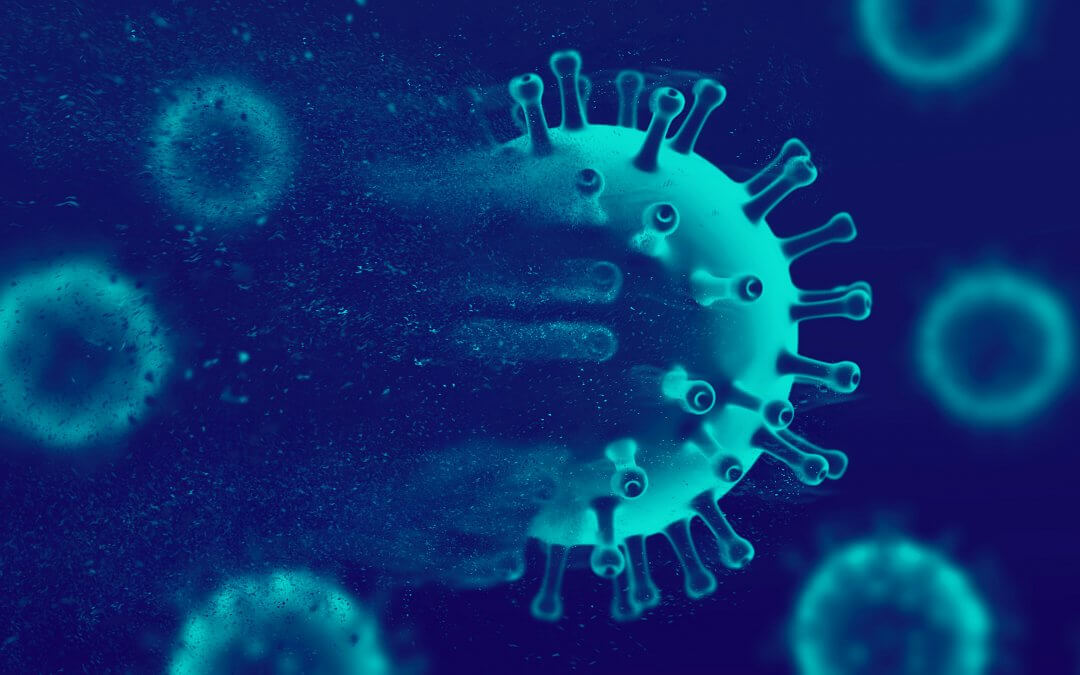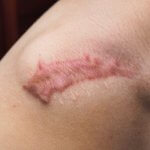Emerging research suggests that stem cell-based therapies could offer a new approach to treating influenza-related lung damage.
Mesenchymal stem cells (MSCs) in particular have been shown to repair lung tissue and modulate the immune response, providing hope for quicker and more complete recoveries from severe flu infections.
What is Influenza?
Influenza, otherwise commonly referred to as flu, is a viral infection that affects the respiratory system.
Symptoms can range from mild to severe, and in some cases, can lead to complications like pneumonia.
Among the most common symptoms are a high temperature, headache, loss of appetite, diarrhoea, and sickness. [1]
Current approaches to influenza, like vaccines and antiviral medications, remain preventative, focusing primarily on prevention and symptom management rather than virus-related damage.
With excess deaths from flu reaching approximately 14,500 in the UK alone last year – higher on average than the five years before the pandemic – severe influenza episodes continue to be a cause for concern. [2]
Who is Most Affected by Influenza?
Influenza can affect anyone, but certain demographics are at higher risk of severe illness and complications:
– Elderly individuals: People aged 65 and older are more susceptible to severe influenza due to a naturally weakened immune system and the higher chance of suffering from chronic health conditions.
– Young children: Infants and young children under the age of 5, especially those under 2 years old, are at a higher risk because their immune systems are still developing.
– Pregnant women: Pregnancy can alter the immune system, making expectant mothers more vulnerable to severe influenza and its complications.
– Individuals with chronic health conditions: People with conditions such as asthma, diabetes, heart disease, and weakened immune systems (e.g., due to cancer treatment or HIV) are at increased risk. [3]
How Can Stem Cells Help?
Stem cells, in particular MSCs, have shown promise in treating a variety of conditions due to their unique properties.
MSCs are found in various tissues, including umbilical cord blood, cord tissue, bone marrow, and fat or adipose tissue.
These cells have the ability to transform into different cell types and aid in tissue repair and regeneration.
They can also modulate immune responses and reduce inflammation, making them ideal candidates for treating diseases like influenza that cause significant damage to lung tissue. [4]
Repairing Lung Damage
MSCs can promote the regeneration of lung tissue by differentiating into various cell types needed for repair, including lung epithelial cells – the cells which contribute to the microbial immune response in the lungs. [5]
They can also reduce the number of inflammatory cells in the lungs, aiding in faster recovery in addition to releasing cytokines and growth factors that stimulate the proliferation of lung cells, helping restore lung function. [6]
Immune Modulation
One of the critical benefits of MSCs is their ability to modulate the immune response.
During an influenza infection, the immune system’s response can sometimes be overwhelming, leading to excessive inflammation and further lung damage.
MSCs help balance this response by reducing harmful inflammation and inhibiting the proliferation of T cells, which are often involved in excessive immune responses. This modulation contributes to a more controlled and effective immune response, preventing extra damage. [7]
Current Research
Recent studies and clinical trials have shown promising results using mesenchymal stem cells (MSCs) to treat lung damage caused by influenza.
Promising Animal Studies
In animal studies, MSC therapy has shown significant potential in treating lung injuries. For instance, in mouse models of a condition called pulmonary arterial hypertension (PAH), which causes high blood pressure in the lungs, MSCs were able to reduce lung damage. They achieved this by modulating the immune response and decreasing inflammation. [8]
Research suggests that human placenta mesenchymal stem cells (hPMSCs) also have the ability to regulate immune responses by inhibiting the proliferation of T-cells, thereby reducing inflammation deriving from excessive immune response.
Another study looked at lung injury caused by a toxic gas called phosgene. The researchers found that MSCs helped the lung’s own stem cells to proliferate and repair the damaged tissue. [9]
Increasing Human Trials
Interest in using MSCs to treat virus-induced lung injury is growing, and the number of clinical trials is on the rise. One notable trial from 2020 found that MSCs significantly reduced mortality in patients suffering from acute respiratory distress syndrome (ARDS) caused by the H7N9 subtype of influenza A. [10]
Another trial for ARDS sought to investigate whether MSCs derived from the placenta and umbilical cord could be used to treat severely ill COVID-19 patients. They were found to be effective in rapidly reducing respiratory distress and inflammation. [11]
These trials indicate that MSCs are safe to use and hold great potential for treating lung damage from influenza, though proving their effectiveness is still a work in progress.
The Future of MSC Therapy for Influenza
Stem cells, particularly MSCs, offer a promising new frontier in treating influenza-related lung damage.
As research progresses, we may soon see MSC-based therapies becoming a standard part of influenza treatment, providing hope for quicker and more complete recoveries from severe flu infections.
Saving the stem cells from your baby’s umbilical cord blood, cord tissue, and placenta is the perfect way to ensure they have access to future treatments for conditions like influenza.
To find out more about how cord blood banking could safeguard your baby’s health, download our free Welcome Pack by filling out the form below.
References
[1] (2023, August 9). Flu. NHS. https://www.nhs.uk/conditions/flu/
FIND OUT MORE, REQUEST YOUR WELCOME PACK TODAY
All you need to know to make an informed decision.
Provide your contact details to request:
– Complete Welcome Pack and Parent’s Guide
– Information via email
– Contact from our specialist advisors









